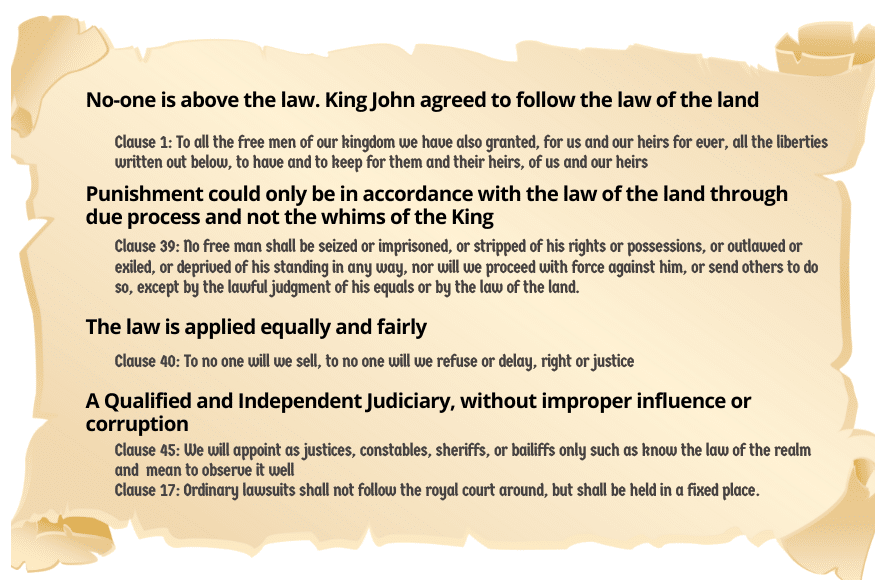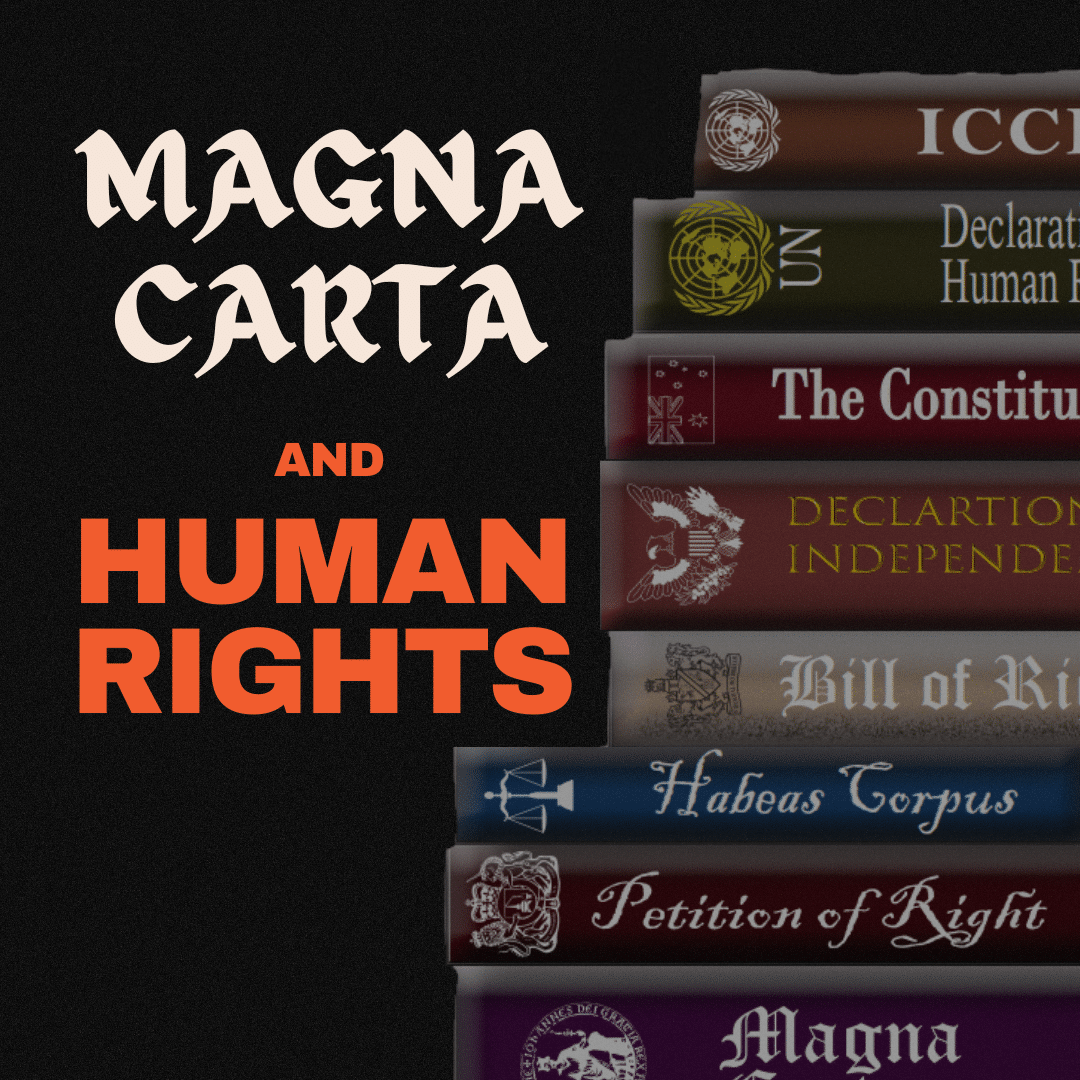How do you prevent a democratically elected person becoming a dictator?
Lessons from the Magna Carta
In 1215, England was ruled by the tyrannical King John. He ruled with absolute authority by reason of his position as King. He believed a King could act as he wanted and could not be constrained by anyone or any law. He thought the laws were there to serve him, and he therefore saw himself as above the law.
During King John’s reign, the people needed a way to limit the King’s power and to restrain him and any other Kings that followed him, without having a civil war to remove him. It was in 1215, in a field in Runnymede between Windsor Castle and London, that a peace treaty was agreed to between the Barons and King John. This treaty is the Magna Carta.
The Magna Carta was a written agreement from the King that he would now follow the law and grant certain liberties to the ‘free men’ of England.
The genius of the Magna Carta is it contained a detailed system of checks and balances that put limits on the King’s power.
In Australia today we are not ruled by a King, but a democratically elected political party headed by the leader of their party. However, like King John, it is possible for those in power to manipulate the system to do what they want. It is through the lessons of the Magna Carta that Australian society today can prevent a democratically elected person from becoming a dictator.
The Magna Carta contained Checks and Balances
As Winston Churchill wrote:
In place of the King’s arbitrary despotism they [the barons] proposed, not the withering anarchy of feudal separatism, but a system of checks and balances which would accord the monarchy its necessary strength, but would prevent its perversion by a tyrant or a fool.
The leaders of the barons in 1215 groped in the dim light towards a fundamental principle. Government must henceforth mean something more than the arbitrary rule of any man, and custom and the law must stand even above the King. It was this idea, perhaps only half understood, that gave unity and force to the barons’ opposition and made the Charter which they now demanded imperishable.
Checks and balances are mechanisms put in place to ensure the King follows the law and does not exceed his power. They ensure the people are ruled by the law and not the whims of the King.
In the Magna Carta, some of the restraints that the King agreed to were

The power of the Rule of Law to stop Dictators and Tyrants
Importantly, the story of the Magna Carta does not end there. Subsequent checks and balances were easily overridden and ignored and King John annulled the Magna Carta just three months later. The Magna Carta was reissued six times by subsequent English Kings, then reaffirmed in England over and over again in the Petition of Right, Habeaus Corpus Act and the Bill of Rights. This highlights that just having the mechanisms in place does not guarantee the King or whoever is in power will rule lawfully.
If you want to stop a democratically elected person becoming a dictator, you need to ensure the Rule of Law is upheld and protected.
For the Rule of Law to have a meaningful operation, it needs two things. Firstly, the mechanisms in place to ensure the power is restrained and secondly, active citizens who hold those in power accountable for their actions.
In Australia, we have adopted many of the checks and balances and legacies of the Magna Carta. Importantly, we are governed by the Rule of Law, where no one is above the law and laws are applied equally and fairly. This is facilitated by an independent and impartial judiciary, freedom of the press, freedom of speech, and the Westminster system of Government. As in the times of Magna Carta, those in power must act lawfully with checks and balances on their power. Where new laws are introduced that give more power, especially during times of an emergency, there must be sufficient checks and balances to place limits on their power. Furthermore when those in power act outside of the law, an independent and impartial arbiter must administer justice according to the law. These mechanisms are crucial in ensuring the power of our democratically elected leaders is restrained.
These mechanisms do not operate by themselves but require active and engaged citizens. There also needs to be a general acceptance in favour of the Rule of Law, and therefore an agreement that there will be times when it is necessary to fight for it. It is through promoting, upholding, and protecting the Rule of Law that you can stop a democratically elected person from becoming a dictator. However, in the last 25 years, governments have generally neglected to teach their communities about the Rule of Law’s importance. You cannot expect anyone to fight for something which they do not understand nor believe in.
What would it look like if there were no checks and balances?
In order to understand why checks and balances and the separation of powers is so crucial, we must consider the situation in reverse. What happens when power is held by one person or a small group of people? When there are no checks, no balances and no separation of power?
Magna Carta Classroom Activities
In this section, teachers will find resources explaining how the story of an 800-year-old document influences the way modern Australia is governed today.
Video: The Magna Carta: Principles of the Rule of Law in Australia today











